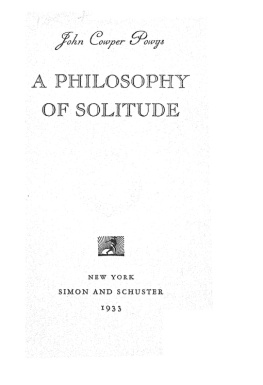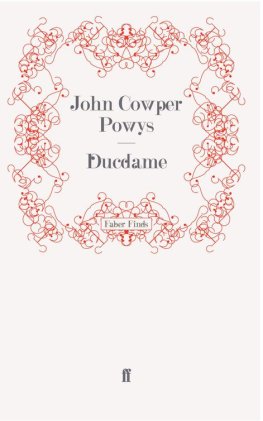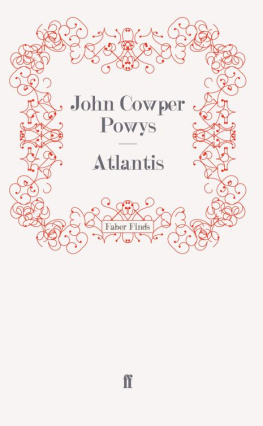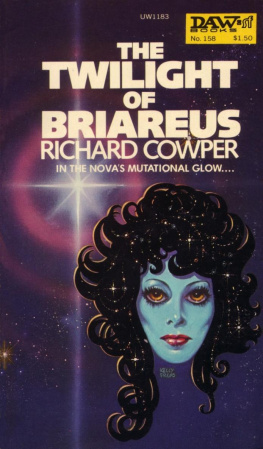Art for art's sake! The thing has become a Decalogue of forbidding commandments, as devastating as those Ten. It is the new avatar of the "moral sense" carrying categorical insolence into the sphere of our one Alsatian sanctuary!
I am afraid Shakespeare was a very "immoral" artist. I am afraid he wrote as one of the profane.
But what of the Greeks? The Greeks never let themselves go! No! And for a sufficient reason. Greek Drama was Religion. It was Ritual. And we know how "responsible" ritual must be. The gods must have their incense from the right kind of censer.
But you cannot evoke Religion "in vacuo." You cannot, simply by assuming grave airs about your personal "taste," or even about the "taste" of your age, give it that consecration.
Beauty? God knows what beauty is. But I can tell you what it is not. It is not the sectarian anxiety of any pompous little clique to get "saved" in the artistic "narrow path." It is much rather what Stendhal called it. But he spoke so frivolously that I dare not quote him.
Has it occurred to you, gentle reader, to note how "Protestant" this New Artistic Movement is? Shakespeare, in his aesthetic method, as well as in his piety, had a Catholic soul. In truth, the hour has arrived when a "Renaissance" of the free spirit of Poetry in Drama is required. Why must this monstrous shadow of the Hyperborean Ibsen go on darkening the play-instinct in us, like some ugly, domineering John Knox? I suspect that there are many generous Rabelaisian souls who could lift our mortal burden with oceanic merriment, only the New Movement frightens them. They are afraid they would not be "Greek" enoughor "Scandinavian" enough. Meanwhile the miserable populace have to choose between Babylonian Pantomimes and Gaelic Mythology, if they are not driven, out of a kind of spite, into the region of wholesome "domestic sunshine."
What, in our hearts, we natural men desire is to be delivered at one blow from the fairies with weird names (so different from poor Titania!), and from the three-thousand "Unities!" What "poetry" we do get is so vague and dim and wistful and forlorn that it makes us want to go out and "buy clothes" for someone. We veer between the abomination of city-reform and the desolation of Ultima Thule.
But Shakespeare is Shakespeare still. O those broken and gasped-out human cries, full of the old poignancy, full of the old enchantment! Shakespeare's poetry is the extreme opposite of any "cult." It is the ineffable expression, in music that makes the heart stop, of the feelings which have stirred every Jack and Jill among us, from the beginning of the world! It has the effect of those old "songs" of the countryside that hit the heart in us so shrewdly that one feels as though the wind had made them or the rain or the wayside grass; for they know too much of what we tell to none! It is the "one touch of Nature." And how they break the rules, these surpassing lines, in which the emotions of his motley company gasp themselves away!
It is not so much in the great speeches, noble as these are, as in the brief, tragic cries and broken stammerings, that his unapproachable felicity is found. "Upon such sacrifices, my Cordelia, the gods themselves throw incense." Thick and fast they crowd upon our memory, these little sentences, these aching rhythms! It is with the flesh and blood of the daily Sacrifice of our common endurance that he celebrates his strange Mass. Hands that "smell of mortality," lips that "so sweetly were forsworn," eyes that "look their last" on all they love, these are the touches that make us bow down before the final terrible absolution. And it is the same with Nature. Not to Shakespeare do we go for those pseudo-scientific, pseudo-ethical interpretations, so crafty in their word-painting, so cunning in their rational analysis, which we find in the rest. A few fierce-flung words, from the hot heart of an amorist's lust, and all the smouldering magic of the noon-day woods takes your breath. A sobbing death-dirge from the bosom of a love-lorn child, and the perfume of all the "enclosed gardens" in the world shudders through your veins.
And what about the ancient antagonist of the Earth? What about the Great Deep? Has anyone, anywhere else, gathered into words the human tremor and the human recoil that are excited universally when we go down "upon the beached verge of the salt flood, who once a day with his embossed froth the turbulent surge doth cover?" John Keats was haunted day and night by the simple refrain in Lear, "Canst thou not hear the Sea?"
Charming Idyllists may count the petals of the cuckoo-buds in the river-pastures; and untouched, we admire. But let old Falstaff, as he lies a' dying, "babble o' green fields," and all the long, long thoughts of youth steal over us, like a summer wind.
The modern critic, with a philosophic bias, is inclined to quarrel with the obvious human congruity of Shakespeare's utterances. What is the use of this constant repetition of the obvious truism: "When we are born we cry that we are come to this great stage of fools?"
No use, my friend! No earthly use! And yet it is not a premeditated reflection, put in "for art's sake." It is the poetry of the pinch of Fate; it is the human revenge we take upon the insulting irony of our lot.
But Shakespeare does not always strike back at the gods with bitter blows. In this queer world, where we have "nor youth, nor age, but, as it were, an after-dinner's sleep, dreaming on both," there come moments when the spirit is too sore wounded even to rise in revolt. Then, in a sort of "cheerful despair," we can only wait the event. And Shakespeare has his word for this also.
Perhaps the worst of all "the slings and arrows" are the intolerable partings we have to submit to, from the darlings of our soul. And here, while he offers us no false hope, his tone loses its bitterness, and grows gentle and solemn.
It is"Forever and forever, farewell, Cassius. If we do meet again, why then 'tis well; if not, this parting was well made." And for the Future:
"O that we knew
The end of this day's business ere it comes!
But it suffices that the day will end;
And then the end is known."
EL GRECO
The emerging of a great genius into long retarded pre-eminence is always attended by certain critical misunderstandings. To a cynical observer, on the lookout for characteristic temperamental lapses, two recent interpretations of El Greco may be especially commended. I mean the Secret of Toledo, by Maurice Barres, and an article in the "Contemporary" of April, 1914, by Mr. Aubrey Bell.
BarresFrenchman of Frenchmensets off, with captivating and plausible logic, to generalize into reasonable harmlessness this formidable madman. He interprets Toledo, appreciates Spain, and patronizes Domenico Theotocopoulos.
The Secret of Toledo is a charming book, with illuminating passages, but it is too logical, too plausible, too full of the preciosity of dainty generalization, to reach the dark and arbitrary soul, either of Spain or of Spain's great painter.
Mr. Bell, on the contrary, far from turning El Greco into an epicurean cult, drags him with a somewhat heavy hand before the footlights of English Idealism.
He makes of him an excuse for disparaging Velasquez, and launches into a discourse upon the Higher Reality and the Inner Truth which leaves one with a very dreary feeling, and, by some ponderous application of spiritual ropes and pulleys, seems to jerk into empty space all that is most personal and arresting in the artist.














